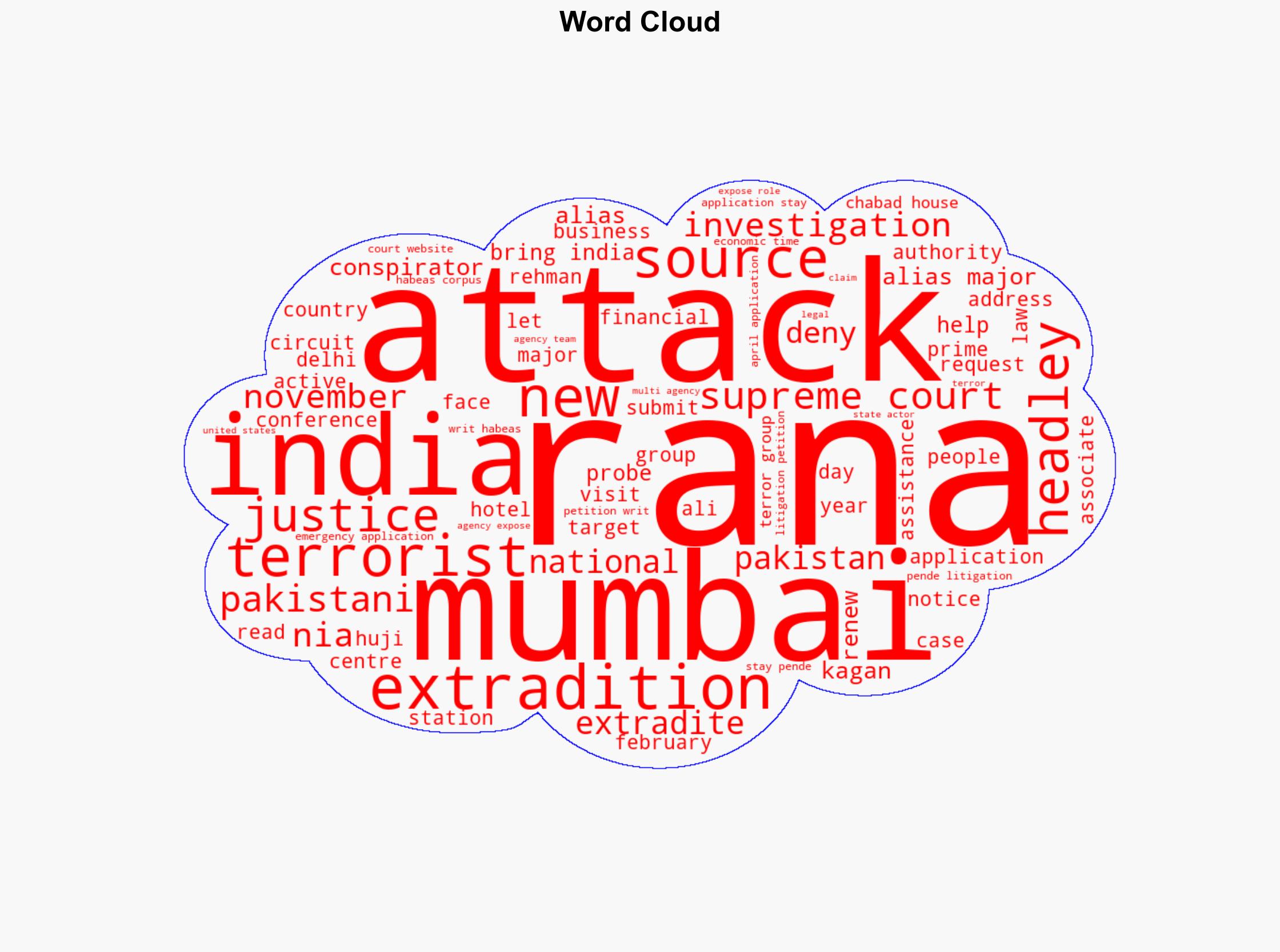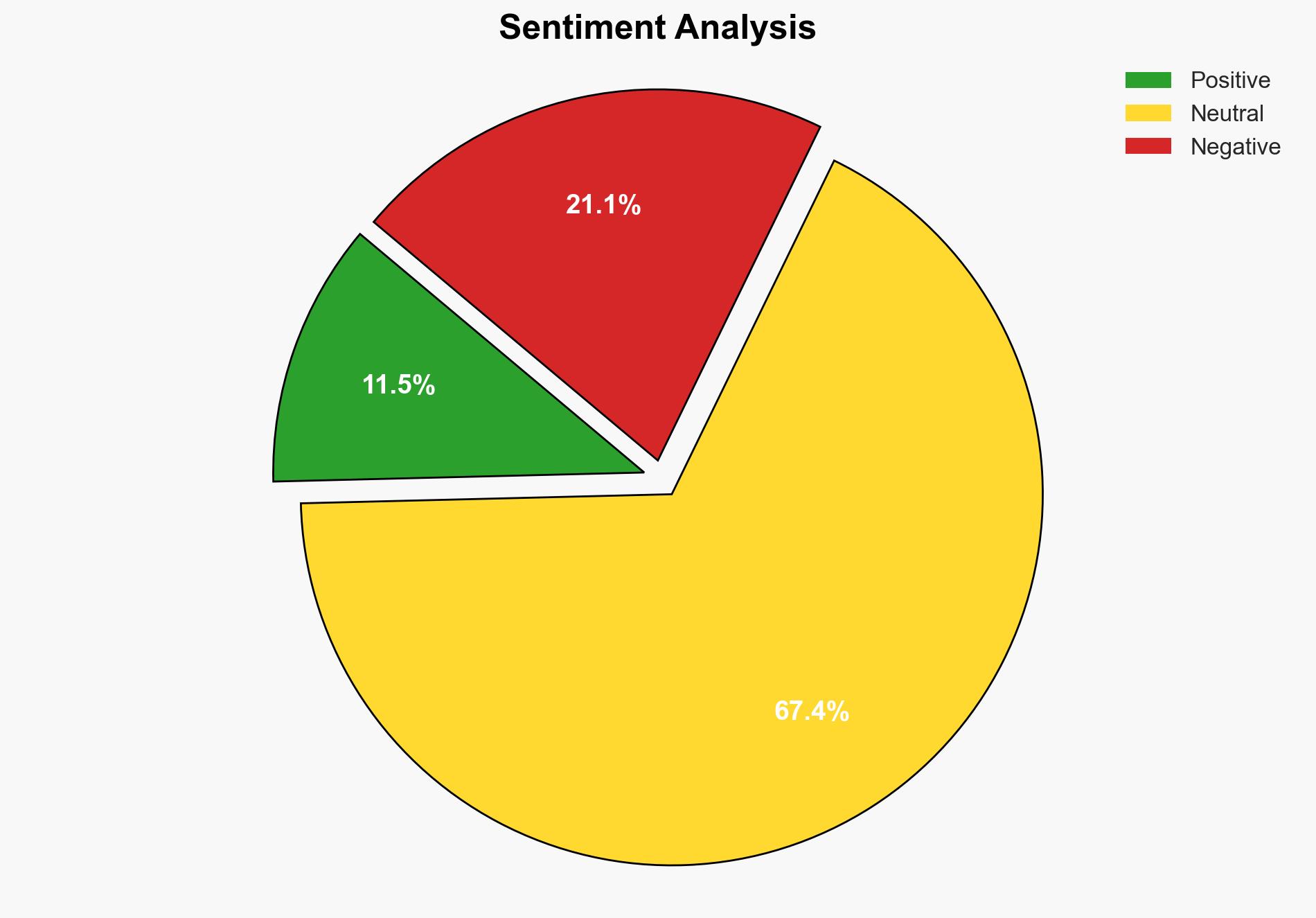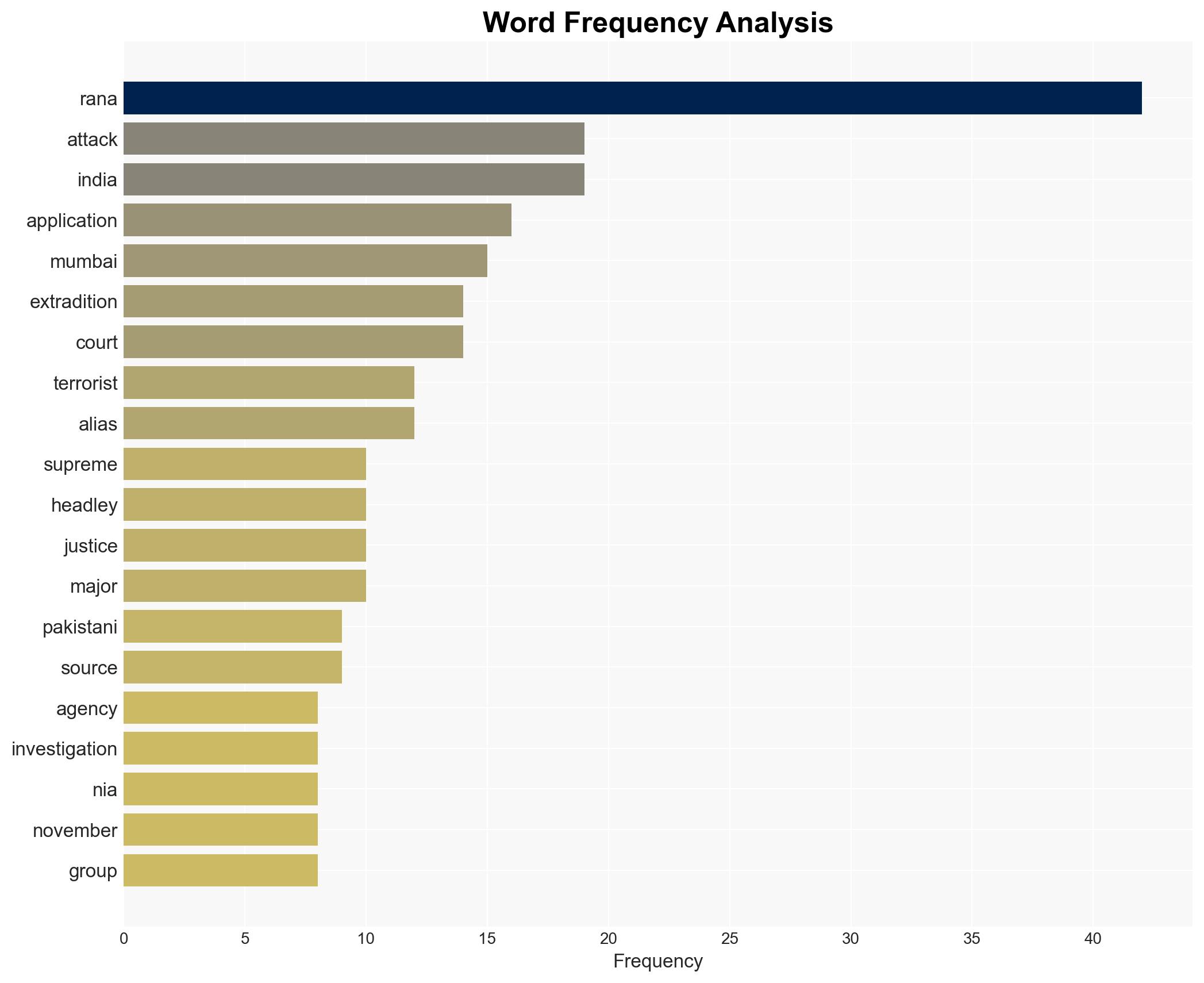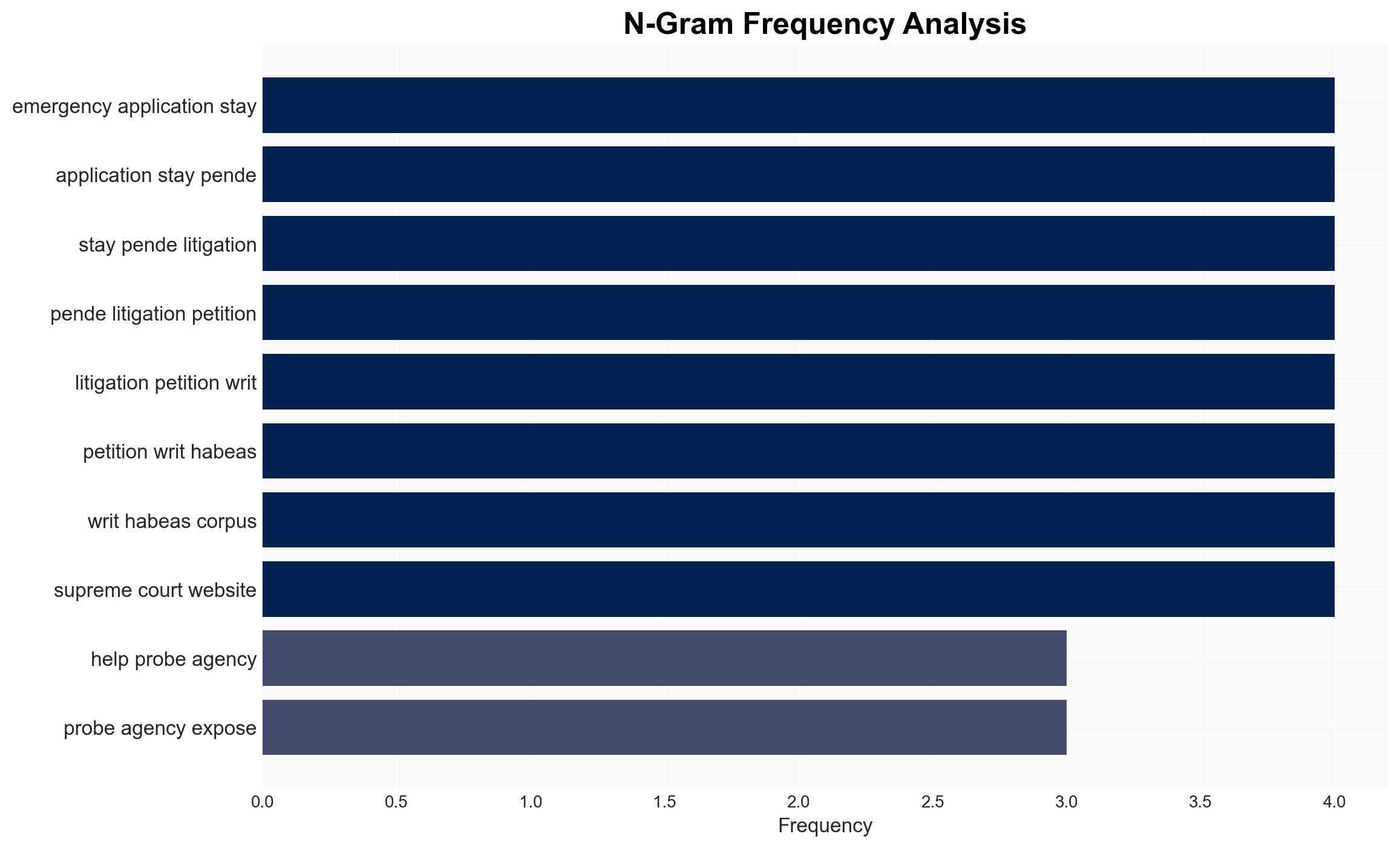Tahawwur Rana’s extradition will expose Pakistani state actors’ role in 2611 attacks Sources – The Times of India
Published on: 2025-04-09
Intelligence Report: Tahawwur Rana’s Extradition Will Expose Pakistani State Actors’ Role in 2611 Attacks
1. BLUF (Bottom Line Up Front)
Tahawwur Rana is expected to be extradited to India, a move that could significantly advance investigations into the 2611 Mumbai attacks by exposing the involvement of Pakistani state actors. This development follows the exhaustion of Rana’s legal options in the United States. The extradition is anticipated to provide critical insights into the planning and execution of the attacks, potentially implicating additional individuals and entities.
2. Detailed Analysis
The following structured analytic techniques have been applied for this analysis:
General Analysis
The extradition of Tahawwur Rana is a pivotal moment in the ongoing investigation of the 2611 Mumbai attacks. Rana’s connections to David Coleman Headley and his alleged support for reconnaissance activities in India are of particular interest. The multi-agency team from India is poised to leverage Rana’s extradition to uncover further details about the attacks, including the operational roles of Pakistani state actors. The legal proceedings in the United States have concluded, paving the way for Rana’s transfer to Indian custody.
3. Implications and Strategic Risks
The extradition of Tahawwur Rana carries significant implications for regional stability and international relations. The exposure of Pakistani state actors’ involvement could strain diplomatic ties between India and Pakistan, potentially escalating tensions. Additionally, the revelations could impact counter-terrorism strategies and cooperation between international agencies. Economically, heightened tensions could affect regional markets and investor confidence.
4. Recommendations and Outlook
Recommendations:
- Enhance intelligence-sharing mechanisms between India and allied nations to ensure comprehensive analysis of new information obtained from Rana.
- Strengthen diplomatic channels to manage potential fallout from revelations about Pakistani state actors.
- Implement robust security measures to prevent retaliatory actions or escalations in regional conflict.
Outlook:
Best-case scenario: The extradition leads to significant breakthroughs in the investigation, resulting in the identification and prosecution of additional perpetrators, while diplomatic efforts mitigate regional tensions.
Worst-case scenario: Diplomatic relations deteriorate, leading to increased hostilities and destabilization in the region.
Most likely outcome: The extradition provides valuable intelligence that enhances counter-terrorism efforts, with manageable diplomatic repercussions.
5. Key Individuals and Entities
The report mentions significant individuals, including Tahawwur Rana, David Coleman Headley, and Ajmal Amir Kasab. Organizations of interest include Lashkar-e-Taiba and Harkat-ul-Jihadi-Islami. These entities are central to understanding the network and execution of the 2611 Mumbai attacks.




